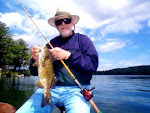http://www.chebucto.ns.ca/~lfoster/lesliereunion/knower3.htmLeslie Family Tree Comments, corrections to
Mary Ellen Foster (mefoster@gmail.com)Up StartMaud Mary Knower Feb 20, 1875 - Sept 1951 m Jan 8, 1902 Charles Herbert Lorenz Feb 16, 1877 - Oct 1946
John Andrew Lorenz Feb 17, 1903 - July 29, 1958 m Aug 10, 1935 Laura Louise Robbins Jun 2, 1912 - Mar 2, 1961
Andrew Kenyon Lorenz Jul 21, 1936 m June 3, 1961 Sally Elizabeth Price 1938
Patricia Lorenz Apr 2, 1962
Andrew Lorenz Jan 1, 1965
Elizabeth Lorenz Sept 18, 1969
John Robbins Lorenz Mar 14, 1939 m Oct 12, 1963 Margaret Caldwell
John Caldwell Lorenz Sept 30, 1965
Steven Lorenz July 23, 1968
Anne Lazelle Lorenz Aug 21, 1941 m Sep 9, 1962 William L. Sullivan III Jul 25, 1938
John William Sullivan Jul 1, 1963 m Michelle Dennis
John William Sullivan Jr. 1990-
Laura Anne Sullivan Aug 27, 1964
Mary Catherine Sullivan Mar 7, 1966
David Allen Lorenz Nov 3, 1944 m Jun 17, 1970 Margaret Mathews
Daniel Matthew Lorenz 1975-
Theresa Lazelle Lorenz 1976-
Catherine Louise Lorenz 1978-
David Andrew Lorenz 1983-
Mary Scott Lorenz Nov 18, 1946 m Bill Dettman
Nancy Fox Lorenz Jun 16, 1951
Charles Knower Lorenz Nov 15, 1904 - 1966 m Oct 17, 1943 Virginia McCormick Feb 19, 1916 (divorced 1955)
Charles William Lorenz Jul 20, 1943 m Nov 31, 1965 Marilyn Chesky
Craig Lorenz 1976-
Virginia Lorenz 1978-
Daniel McCormick Lorenz Oct 22, 1944 m Dec 30, 1970 Nancy Klimas; Colleen Driscoll
Jessica Lorenz 1972-
Michael Lorenz 1975-
William Knower Lorenz Sept 16, 1947 m Marianne
Herbert Alan Lorenz Jan 30, 1906 - Mar 1, 1977 m July 16, 1932 Reta Deslile Renneberg Jan 16, 1907
Judith Christine Lorenz July 15, 1933 m Feb 11, 1956 Frank William Zwygart, Jr. Jan 14, 1933 (divorced Jul 1980); Robert C. Green
Frank William Zwygart III Aug 30, 1957 m Susan Cheatham; Bertha
Erin Elizabeth Zygart 1985-
Susan Leigh Zygart
Susan Leigh Zwygart May 27, 1960
Mary Eleanor Lorenz Apr 2, 1909 m Sep 24, 1930 Charles Henry Luecking May 29, 1906 - Jul 14, 1958
Marcy Luecking Aug 30, 1932 m Feb 5, 1955 Gustavas A. Buder III (divorced 1966) m Gerd Bastion Huber 1937
Cristy Lane Buder Jan 1, 1956 m Kenneth Morris
Gustavus A. Buder IV Aug 15, 1957
Mary Leslie Buder Feb 12, 1959 m James
Mitchell 1988-
Erika 1990-
Douglas Luecking Buder Sept 14, 1962
Charles Luedking Buder Sept 29, 1969 m Melida 1970-
Krystian Pablo Huber 1995-
Sarah Jane Luecking Mar 9, 1936 m Jun 17, 1959 Robert Babers Stell Dec 27, 1930
Mary Christi Stell Nov 2, 1963
Andrew Babers Stell Sep 24, 1963 m Cathy
John Luecking Stell Mar 25, 1968 m Elizabeth
James Leslie Lorenz Jun 20, 1920 m Jeanne Marie Polk (divorced 1952) m May 22, 1953 Patricia L. Tolliver (divorced 1963)
Leslie Scranton Lorenz 1945 m Ernest Figari (divorced Nov 1981); Robert See
Ernest Figari
Robert See
James Bruce Lorenz Jan 19, 1948 - Jan 10, 1950
Margaret Scott Lorenz 1951
Timothy George Lorenz Jul 16, 1958 m Glenda; Susan
Aubry Lorenz
Leslie Lorenz
Sarah Lorenz
Marcy Lorenz
Jared Lorenz
 ""1957 "Coronation court" at Webster Groves High. Jack, top row 4th from right; Wagner 3rd from right; Lang, 4th from left; 2nd row, L to R, Whitehead, Oliver, Hawkins (infamous); "King Fin" on right.""
""1957 "Coronation court" at Webster Groves High. Jack, top row 4th from right; Wagner 3rd from right; Lang, 4th from left; 2nd row, L to R, Whitehead, Oliver, Hawkins (infamous); "King Fin" on right."" " Steve Lang wearing Jack's mask which he called "The Face." Jack once wore it when Cy was driving in south St. Louis. We noticed Stan Musial at a light next to us and Jack rolled down his window and said "Hi Stan," who cracked up in laughter."
" Steve Lang wearing Jack's mask which he called "The Face." Jack once wore it when Cy was driving in south St. Louis. We noticed Stan Musial at a light next to us and Jack rolled down his window and said "Hi Stan," who cracked up in laughter."


